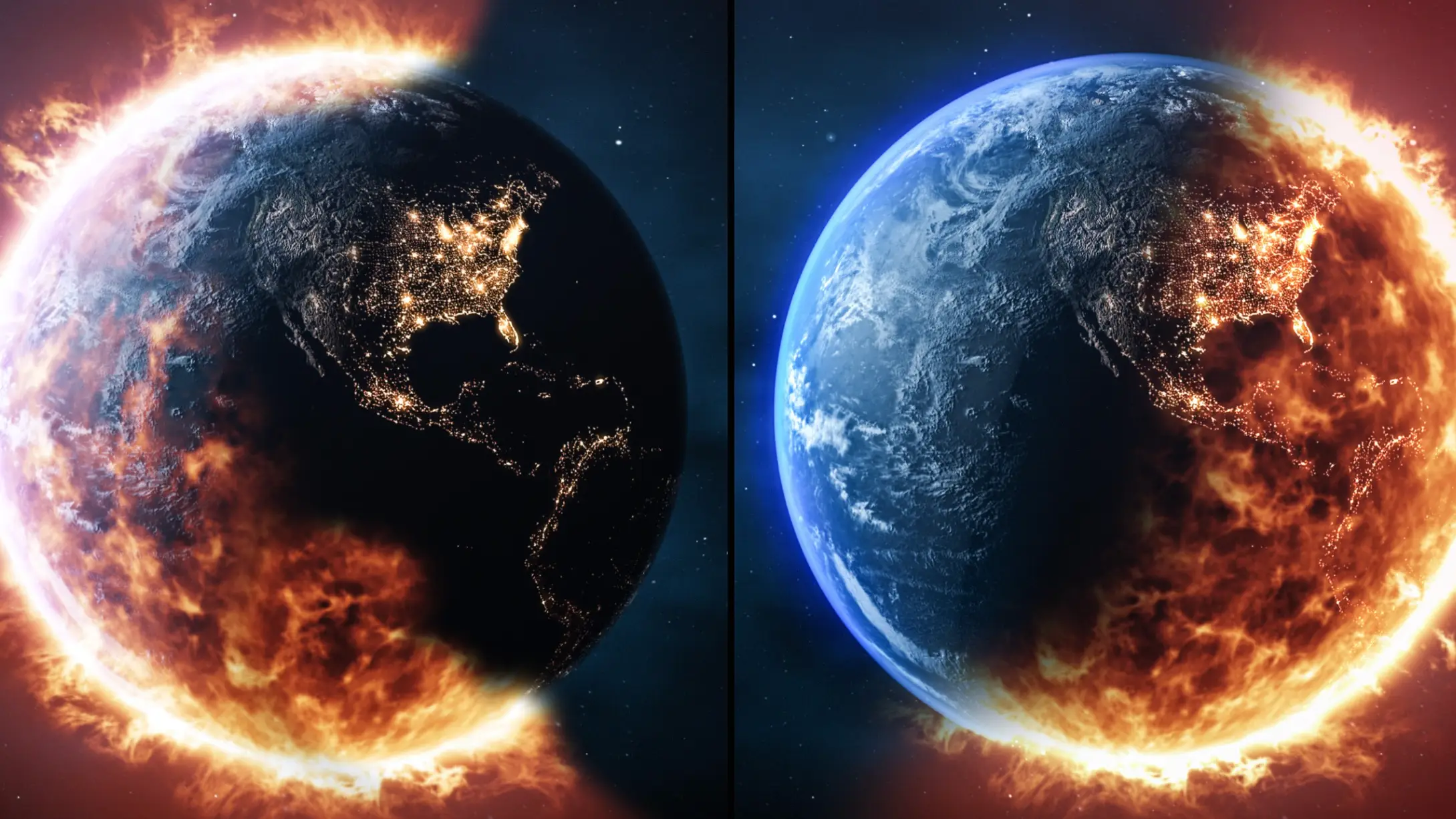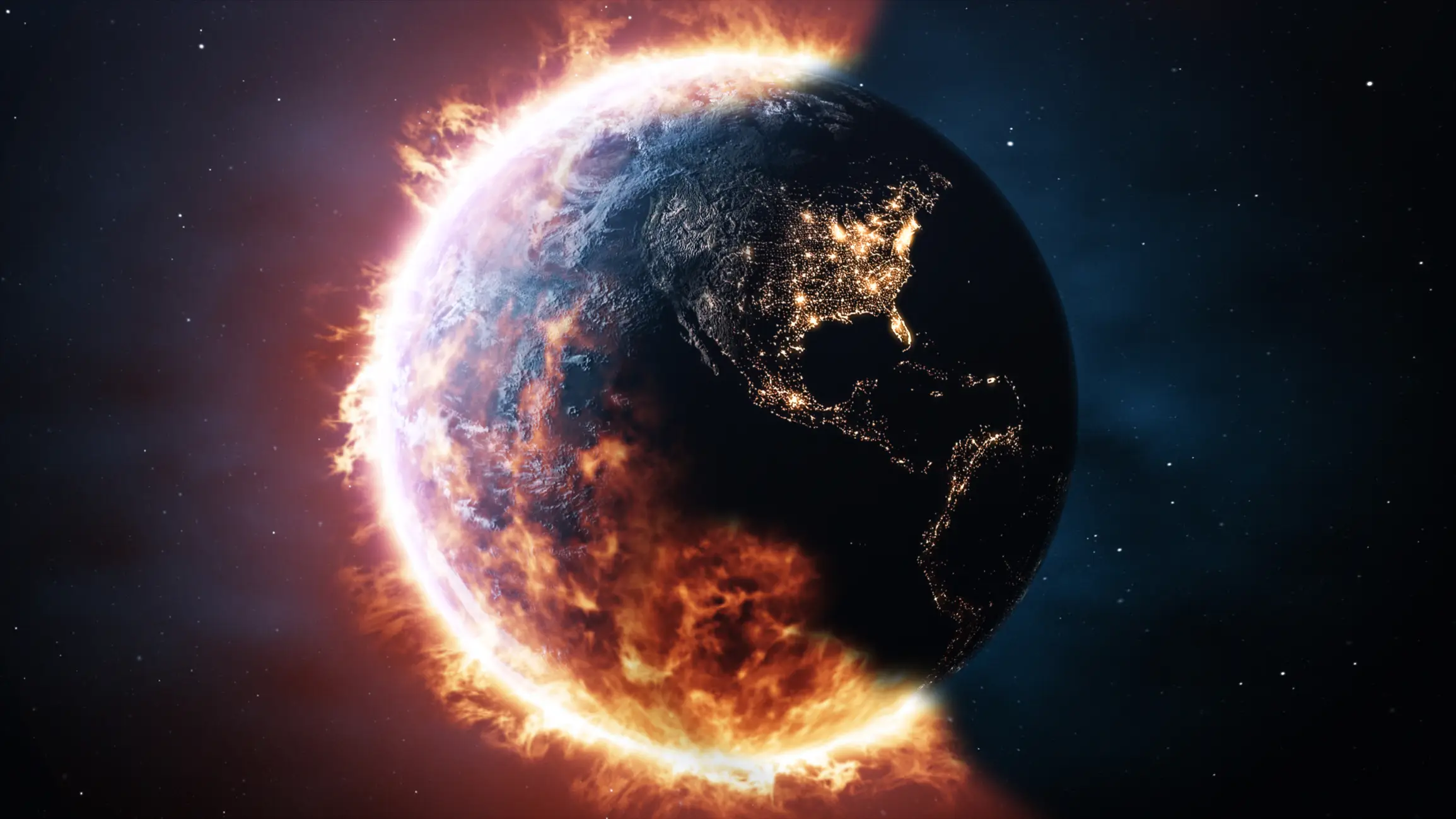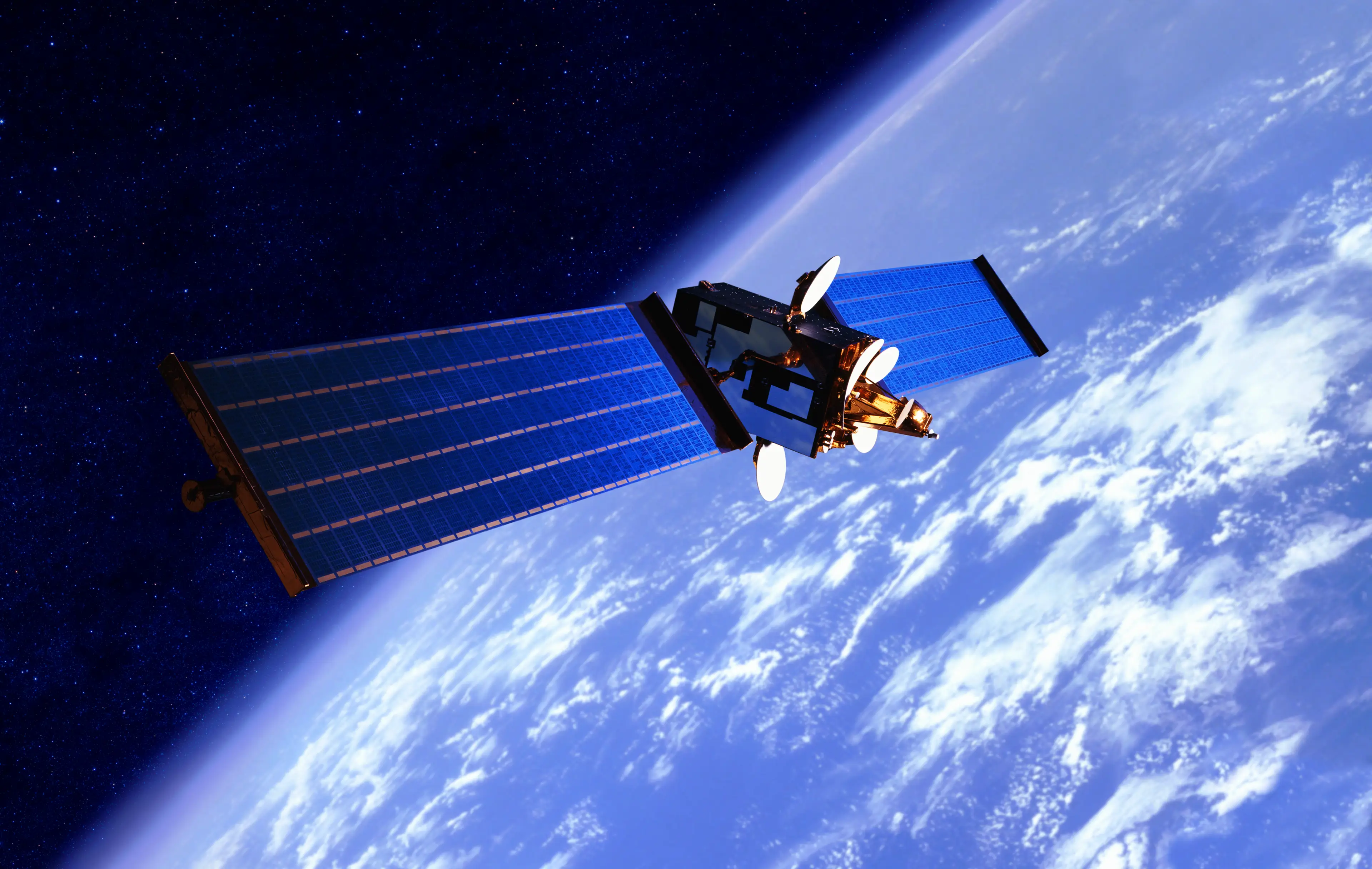
As if we haven't had enough wacky weather of late, Brits have been warned to brace for a solar radiation storm which is set to hit the planet sometime this week.
The UK has basked in glorious sunshine, battled bouts of thunder and lightning and had the Northern Lights pay a visit all in the space of a few days - so it's safe to say a lot of us are scared to look out of the window by this point.
Luckily, this looming storm won't leave you soaking wet or sweating pints, but it could impact you in other ways.
You see, the thing with solar radiation storms up in space is, us Earthlings don't see them happening.
Advert
Instead, we mostly just notice the consequences of them - as they can wreak havoc on infrastructure, disrupt power grids and disable satellites.

And experts at the National Oceanic and Atmospheric Administration (NOAA) have warned that there is a 60 percent likelihood of a radiation storm smashing into Earth today (14 May) and lower odds of it hitting tomorrow (15 May).
The US government agency's Space Weather Prediction Center also said that the geomagnetic storms - which made the aurora borealis visible from Brit's back gardens - will be carrying on until Monday too.
People have been reassured that radiation storms pose no risk to humans - however, the same doesn't go for astronauts.
According to NOAA, this space weather phenomenon occurs when 'a large-scale magnetic eruption, often causing a coronal mass ejection and associated solar flare, accelerates charged particles in the solar atmosphere to very high velocities.'
The Sun is releasing streams of electromagnetic radiation which contains large quantities of charged particles.
And, because of the magnetic activity on the surface of the star which gives us light and warmth, there's a lot more of them and they're going a lot faster.
NOAA say that these protons 'can traverse the 150 million km from the Sun to Earth in just 10's of minutes or less'.
Thankfully, we're protected from these flying particles by the Earth's magnetic field and atmosphere, which is a good job.
According to NOAA, they can 'penetrate deep into the object that they collide with and cause damage to electronic circuits or biological DNA', which is something that would definitely ruin your weekend plans.
Astronauts, on the other hand, don't have that luxury and they're battling a heightened risk of radiation hazards, especially if they venture out of their spacecraft.
Brits may, however, have to deal with some technological or travel disruption.

Space Weather Live explained: "One effect that we can experience on Earth during strong solar radiation storms is an increased risk of people on transpolar flights receiving a higher dose of radiation than normal.
"Transpolar flights sometimes have to be rerouted or cancelled because of these radiation storms.
"Satellites out in space are also vulnerable: these protons degrade solar panel efficiency, onboard electronic circuitry can malfunction and the protons will create noise in star-tracking systems."
Basically, be aware that you might face difficulty with communications, power grid and satellites if the radiation storm decides to strike with a vengeance.